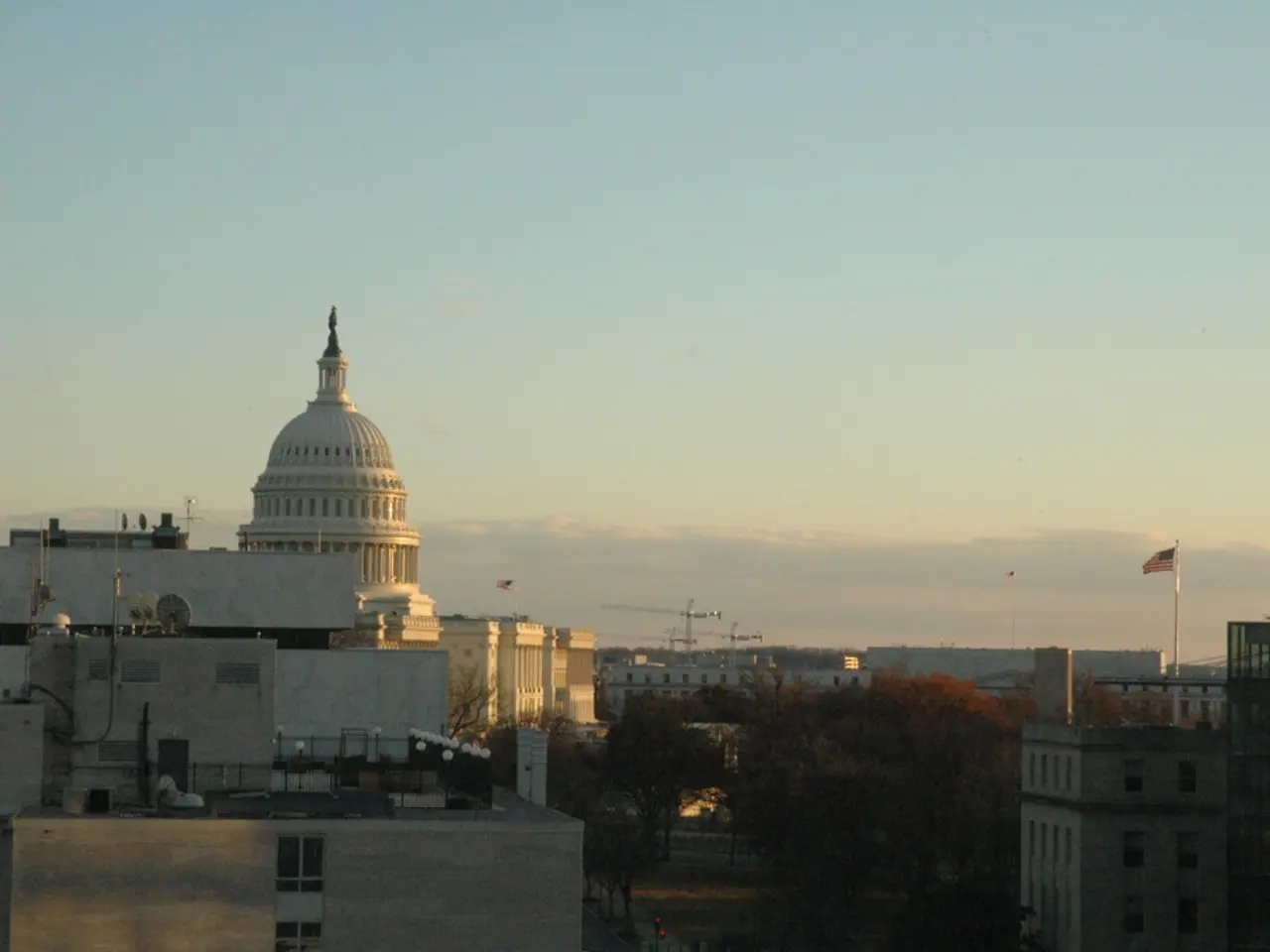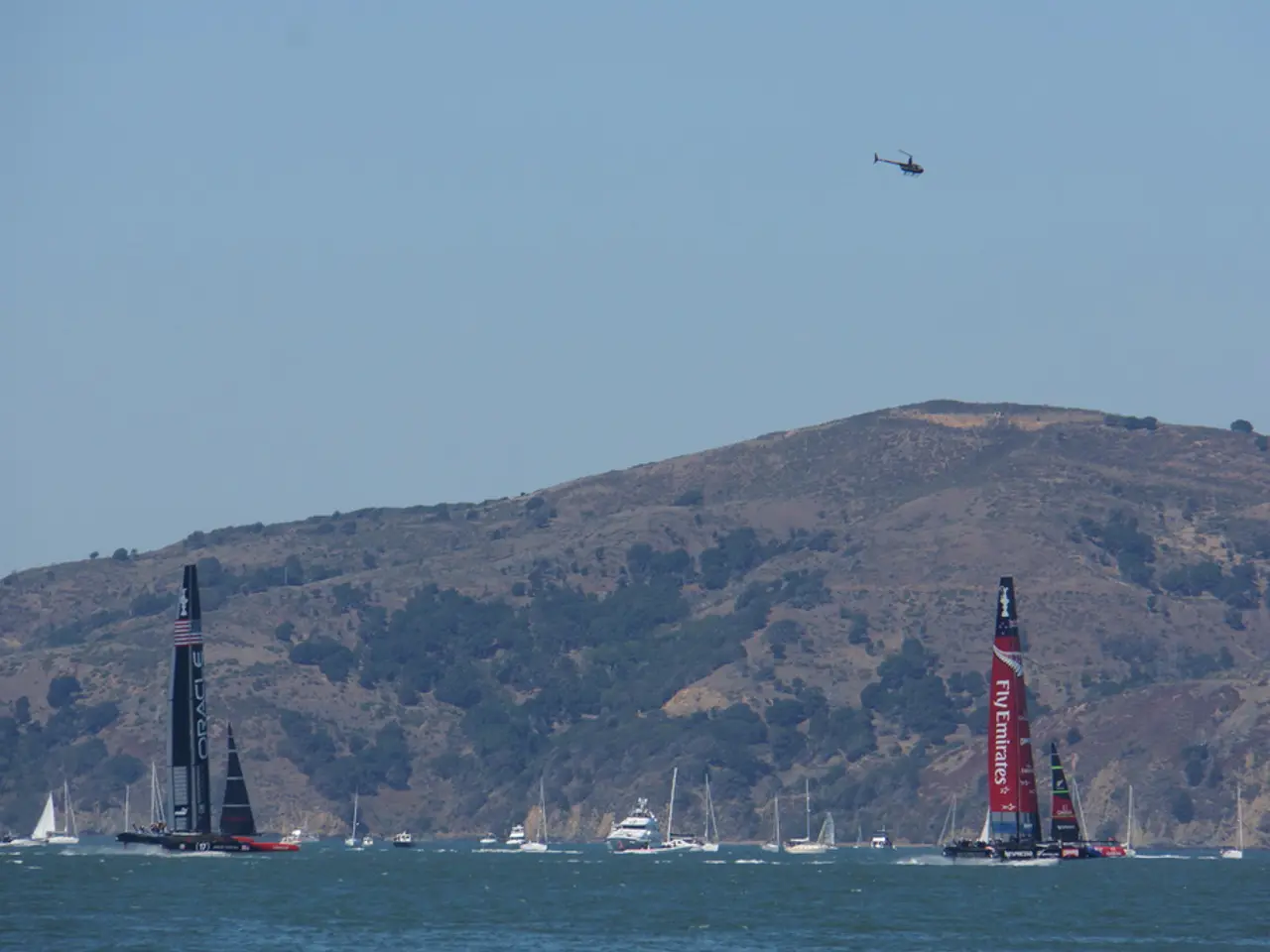Is Netanyahu pushing for perpetual conflict in the Gaza region?
In a thought-provoking conversation, Niall Paterson, a Palestinian aid worker in Gaza, and Professor Yossi Mekelberg, a senior consulting fellow for the Middle East and North Africa programme at Chatham House, discuss the potential implications of a full Israeli military occupation of Gaza.
The discussion, produced by Alix Culbertson and edited by Mike Bovill, aims to shed light on the complexities and repercussions of such a move. The episode is part of a wider conversation, with Anshel Pfeffer speaking with Yalda Hakim on the latest episode of "The World with Richard Engel and Yalda Hakim" about the same topic.
If Israel were to fully occupy Gaza, the consequences would be far-reaching and severe. For Gazans, the occupation would exacerbate an already devastating humanitarian crisis. Over 90% of homes are damaged or destroyed, and nearly all Gaza’s hospitals face collapse or partial functionality. The ongoing violence, loss, and trauma would take a heavy toll on civilians, including children, both physically and psychologically.
For Israel, a full occupation risks becoming a prolonged "forever war," with increased dangers to Israeli soldiers and civilians, ongoing security threats from entrenched militant groups like Hamas, and challenges managing an occupied territory without a clear governance plan. The Israeli military itself has warned that such an operation risks endangering Israeli hostages held in Gaza and could escalate casualties and destruction.
In the Middle East, the occupation could fuel broader regional instability. Increased displacement and suffering in Gaza may provoke strong criticism and protests from Arab states and populations, complicating diplomatic relations and potentially encouraging militant groups beyond Gaza. The lack of a credible political solution post-occupation risks creating a power vacuum and further radicalization, undermining any prospects for peace.
Globally, the occupation would likely deepen humanitarian concerns and international condemnation. The United Nations and other agencies warn that further escalation will compound the "already catastrophic consequences" for millions and breach international law obligations. The crisis might provoke global political divisions, challenging international actors to address questions around humanitarian aid access, refugee flows, and long-term conflict resolution.
Despite 22 months of war, Benjamin Netanyahu, the Israeli Prime Minister, desires a full military occupation. However, 600 former Israeli military officials have warned against such a move, citing the potential long-term occupation's impact on the living conditions for those in Gaza.
As the conversation continues, the future of Gaza remains uncertain under potential long-term occupation, underscoring the need for a peaceful and sustainable solution that prioritizes the well-being of all those involved.
- The potential long-term Israeli military occupation of Gaza, as desired by Benjamin Netanyahu, could lead to a devastating humanitarian crisis for Gazans, with over 90% of homes damaged or destroyed and nearly all hospitals facing collapse or partial functionality.
- In the global political sphere, the occupation of Gaza would likely deepen humanitarian concerns and international condemnation, potentially causing global political divisions and challenging international actors to address questions around humanitarian aid access, refugee flows, and long-term conflict resolution.





